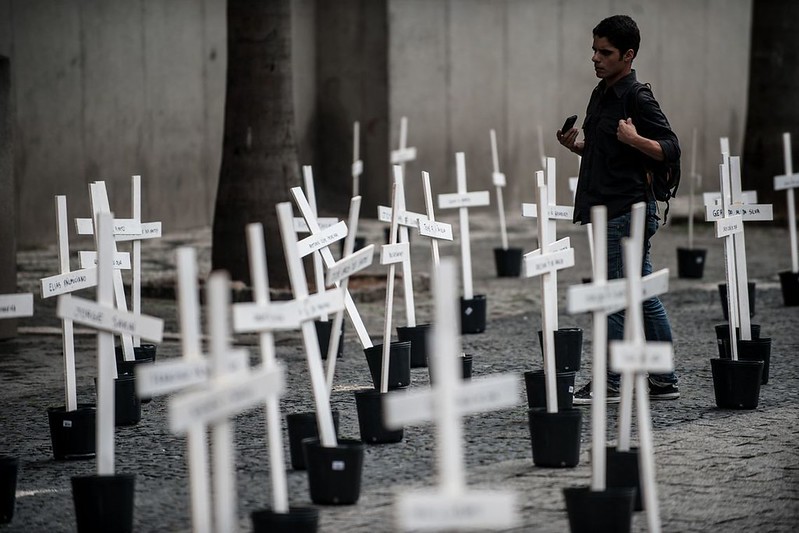Supreme Court Justice Luís Roberto Barroso on Thursday ruled as final and unappealable two decisions related to the convictions of the police officers who carried out the Carandiru massacre in 1992, the deadliest case of prison violence in Brazil’s recent history.
The ruling means that the case will receive no further decisions at the Supreme Court level.
The Supreme Court’s press office clarified to The Brazilian Report that Justice Barroso’s rulings are final, but the same is not true for the convictions themselves. The case is sealed, and the documents are not public.
In October 1992, inmates at the Carandiru prison in São Paulo staged a riot that was brutally quelled by law enforcement, with 111 men killed in just 30 minutes. The officers claimed self-defense, but the murdered men were unarmed and several had bullet wounds in the back of their heads, a clear sign of execution.
The massacre was fundamental to the creation of the First Capital Command (PCC) criminal organization in a São Paulo prison one year later. The PCC has grown to become what the U.S. government described as “the most powerful organized crime group in Brazil and among the most powerful in the world.”
A panel at São Paulo’s top court will reportedly rule on the sentencing of the convicted officers on November 22. That same panel in 2016 ruled to void the convictions of 73 law enforcement agents involved in the massacre.
Justice Barroso’s decision came two days after Luiz Antônio Fleury Filho, who was the governor of São Paulo at the time of the massacre, died aged 73. The former politician was never prosecuted for the case. In 2013, he denied ordering the police to storm the prison, but said the operation was “legitimate.”
The police colonel who led the operation, Ubiratan Guimarães, was murdered in 2006.
In August, the House Public Security Committee approved a bill granting amnesty to 74 police officers convicted for the Carandiru massacre. The bill needs to pass in another House committee and go through a floor vote before heading to the Senate.


 Search
Search






































